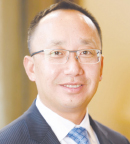
Jun J. Mao, MD, MSCE
Due to COVID-19, this year’s ASCO Annual Meeting was convened using a virtual format. It was multidisciplinary, featuring more than 250 oral and 2,500 poster presentations from around the world in 24 disease-based and specialty tracks. Among the exciting talks in the session on symptoms and survivorship, three focused on integrative medicine interventions for symptom management in patients with cancer and survivors. These presentations involved large trials of acupuncture and yoga for difficult-to-treat symptoms that greatly impair quality of life.
Chronic Musculoskeletal Pain
Given the current opioid epidemic, there is a critical need for nonpharmacologic options to manage chronic pain. The PEACE trial, the largest oncology acupuncture randomized controlled study, assessed the comparative effectiveness of electroacupuncture and auricular acupuncture for chronic musculoskeletal pain in 360 cancer survivors.1 In electroacupuncture, needles are inserted by hand as in traditional acupuncture. The needles are then stimulated by an electric current. For example, a TENS unit (trancutaneous electrical nerve stimulator) may be used to stimulate the needles, allowing the practitioner to adjust the intensity and duration of the electric current. Auricular acupuncture involves needle stimulation of specific points on the ear.
Data showed that compared with usual care, both electroacupuncture and auricular acupuncture (10 weekly treatments) were effective in decreasing moderate-to-severe musculoskeletal pain. Compared from baseline to week 12, electroacupuncture significantly reduced pain severity by 1.9 points (95% confidence interval [CI] = 1.5–2.3, P < .001) and auricular acupuncture, by 1.6 points (95% CI = 1.1–2.0, P < .001). Both interventions also significantly improved the secondary outcomes of functional interference (both P < .001), physical health (both P < .001), and mental health (P = .003, P < .001) compared with usual care.
However, auricular acupuncture was inferior to electroacupuncture and was associated with higher rates of treatment discontinuation due to adverse effects. We hope these findings will help guide the practical implementation of acupuncture as part of a comprehensive pain-management strategy in diverse groups of cancer survivors.

Patrick J. Mansky, MD
Discussant of the session, Patrick J. Mansky, MD, Medical Director of Oncology/Hematology and Integrative Services at Frederick Health, Maryland, noted: “The study by Dr. Mao and colleagues was a well-designed randomized trial, with a whole range of cancer survivors involved, not just breast cancer survivors. Acupuncture clearly showed benefit in cancer survivors.”
Chemotherapy-Induced Peripheral Neuropathy
Chemotherapy-induced peripheral neuropathy is a dose-limiting toxicity and a major clinical challenge. The phase II, randomized ACUFOCIN trial involved 120 patients with cancer (breast, multiple myeloma, gastrointestinal, and gynecologic).2 It was conducted to evaluate the effects of a 10-week acupuncture regimen to mitigate chemotherapy-induced peripheral neuropathy. The primary endpoint was a ≥⊇2-point improvement in MYMOP2 (Measure Yourself Medical Outcome Profile) score at week 10. Data showed the adjusted success odds ratio was 4.3 (95% CI = 1.9–9.6, P < .001; acupuncture plus standard care vs standard care). Significant effects seen at week 10 were also present at week 6.
Summarizing their study findings, Andrew M. Wardley, MBChB, MRCP, MSc, MD, FRCP, Medical Director of the NIHR Manchester Clinical Research Facility at The Christie, United Kingdom, commented: “The 10-week course of acupuncture, in addition to standard of care, significantly improved symptoms of chemotherapy-induced peripheral neuropathy. The results support further investigation in a phase III trial, with full cost-benefit analysis as part of this study.”

Andrew M. Wardley, MBChB, MRCP, MSc, MD, FRCP
Dr. Mansky noted that “the study had a simple and clean design, had an interesting outcomes measure in the MYMOP score that reflects real-life experience with acupuncture.”
Insomnia
Insomnia is a debilitating side effect experienced by many cancer survivors, seriously impairing recovery and survival. The YOCAS trial was a multicenter, phase III randomized study involving 740 participants.3 It was conducted to determine whether yoga was superior to survivorship health education, and whether it was noninferior to cognitive behavioral therapy for insomnia (CBT-I) in the treatment of insomnia.
The study found that yoga participants showed greater improvements in insomnia from pre- to post-intervention (coherent statistic [CS] = –3.61; standard error [SE] = 0.30) compared with those in the survivorship health education group (CS = –2.19; SE = 0.33, all P < .01). Intent-to-treat analyses of noninferiority showed that yoga was inferior to CBT-I (CS mean difference = 3.52; CI = 2.55–4.50, P < .01). However, analyses of noninferiority using the optimal treatment effect in fully compliant survivors were inconclusive with regard to whether yoga for cancer survivors was noninferior to CBT-I for treating insomnia.

Karen M. Mustian, PhD, MPH
Commenting on these findings, Karen M. Mustian, PhD, MPH, Professor of Surgery and Director of the PEAK Human Performance Clinical Research Laboratory at the Wilmot Cancer Institute of the University of Rochester Medical Center, New York, said: “there was significantly greater dropout in the health education and CBT-I compared to YOCAS yoga. Some participants mentioned not liking the health education and CBT-I interventions. Adherence to yoga is good. YOCAS is superior to a survivorship health education behavioral placebo for treating insomnia” and “clinicians may still want to offer both yoga and CBT-I as treatment options for survivors reporting insomnia, especially taking into account patient preference and which one the patient would prefer to do.”
Reflecting on these findings with yoga and CBT-I in cancer survivors, Dr. Mansky commented that “this is a very well-designed study, which builds on a prior yoga study vs support, which was positive. The study met the primary outcome of yoga being better than survivor health education for insomnia. But cognitive behavioral therapy still appears to be the gold standard.”
The exciting results from these trials are practice-changing. The dedication of the research teams, patient volunteers, and integrative health clinicians contributed to the increase in evidence base of integrative oncology for reducing pain and improving sleep for millions of patients with cancer worldwide.
DISCLOSURE: Dr. Mao has received institutional research funding from Tibet Cheezheng Tibetan Medicine Co Ltd and Zhongke Health International LLC. Dr. Mansky reported no conflicts of interest. Dr. Wardley has stock or other ownership interests in Andrew Wardley Ltd and Manchester Cancer Academy Ltd; has received honoraria from AstraZeneca, Lilly, Novartis, Pfizer, and Roche; has served in a consulting or advisory role for Accord Research, AstraZeneca, Athenex, Coleman Expert Network, Daiichi-Sankyo, Gerson Lehrman Group, Guidepoint Global, Lilly, MSD Oncology, NAPP Pharmaceuticals, Novartis, Pfizer, and Roche; has received institutional research funding from “most cancer pharma,” Novartis, Pfizer, and Roche; has received reimbursement for travel, accommodations, and other expenses from Daiichi-Sankyo and Roche; and reported another relationship with MSD Oncology. Dr. Mustian reported no conflicts of interest.
REFERENCES
1. Mao JJ, Liou K, Panageas K, et al: Effects of electroacupuncture and auricular acupuncture for chronic pain in cancer survivors: The PEACE randomized controlled trial. ASCO20 Virtual Scientific Program. Abstract 12004.
2. Wardley AM, Ryder D, Misra V, et al: ACUFOCIN: Randomized clinical trial of ACUpuncture plus standard care versus standard care alone For Chemotherapy Induced peripheral Neuropathy. ASCO20 Virtual Scientific Program. Abstract 12003.
3. Mustian KM, Lin PJ, Culakova E, et al: Effects of YOCAS yoga, cognitive behavioral therapy, and survivorship health education on insomnia: A URCC NCORP research base phase III RCT in 740 cancer survivors. ASCO20 Virtual Scientific Program. Abstract 12005.

